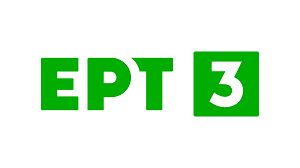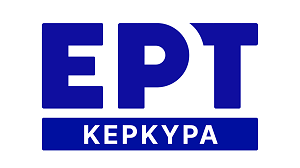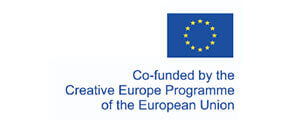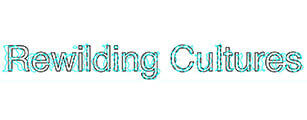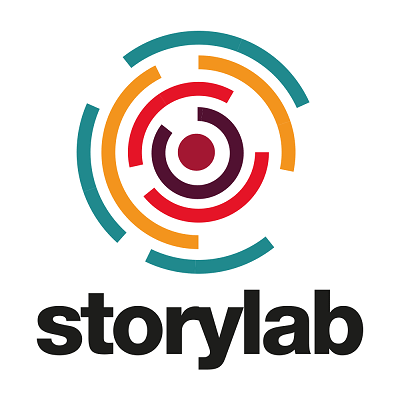Summary
The interactive roleplay of tabletop RPGs brings together the ideas and interests of participants, providing a social and creative experience that entertains players. However, most RPGs have complex gameplay, requiring players a lot of preparation time to play. Therefore, our objective is to create a game within the genre that is welcoming and entertaining to newcomers without alienating potential players with experience. Our methodology consisted of developing a basic mythological theme and building a story campaign and the world while the ruleset was built around it. "Gods and Gods to Be" is a tabletop roleplaying board game played by 3-4 players and a Game Master. Playtesting confirmed that the players understood how to play the game and managed to immerse themselves in the game's world and roleplaying.
Objective
Lately, people of all ages have returned to board games as a leisure pastime, increasing their popularity [1]. Especially tabletop Roleplaying Games (RPGs) rely on a gameplay that provides the most narrative and rules-related powers to the Game Master (GM). The rest of the players take the role of a virtual character, usually recording their verbal and numerical information on character sheets. During the play, players create open-ended interactive storytelling through their verbal descriptions. Each player equally contributes to storytelling based on his/her own experiences, participating in the adventure's unfolding. Therefore, the story occurs within an imaginary world that all players create. The interactive roleplay brings together the ideas and interests of participants, providing a social and creative experience that entertains players [2]. However, most of these games have a difficult-to-understand gameplay making them intimidating to new players. Our objective is to create a game within the genre that is welcoming and entertaining to newcomers without alienating potential players with experience.
Method
To design this game, we assembled the information we needed regarding the research behind the mythological creatures, the mechanisms, and the tools we included. Lots of inspiration was drawn from the infamous fantasy tabletop roleplaying game "Dungeons and Dragons" [3] and the "Arcana Academy" [4]. The first has magical monsters and battles, and the second takes place in a magical school and is a mystery story. The difference with the first is the story world and the different use of dice. The difference with the latter is that the players are mythical creatures with varying abilities, and the teachers are gods from different mythologies. We simplified the game system to be friendly and accessible to novice players and encouraged a creative approach to obstacles. We resulted in "Gods and Gods to Be " a tabletop roleplaying board game played by 3-4 players and a Game Master (GM). The game offers its original fantasy setting and a simplified, modified ruleset. The story takes place in a modern academy, but with one particularity: the students are mythological creatures, and the teachers are deities, all of them from Norse, Aztec, Greek, Japanese and Egyptian mythologies. Set in its own magical dimension, these schoolhouse students desire to cultivate their supernatural powers to become the next generation of deities. However, when some students start losing their powers under mysterious assaults, the protagonists choose to solve the mystery before it is their turn. We performed several playtesting sessions to adjust the mechanics, ensuring our main objectives are being met and reaching the game's final form.
Conclusion
"Gods And Gods To Be" is a tabletop roleplaying board game played by 3-4 players and a Game Master (GM). We designed "Gods & Gods to Be" with its own original fantasy setting and a simplified, modified ruleset. We immersed players in a light and comical story narrative, where cooperation, participation, and analysis can lead them to the solution of a mystery. Additionally, we aimed to redefine elements of classical mythology through a modern setting while introducing an element of parody. Through rigorous playtesting sessions, the mechanics' adjustments ensured that our main objectives were met.
References
[1] Konieczny, P. (2019). Golden Age of Tabletop Gaming. Polish Sociological Review, (206), 199-216.
[2] White, W. J., Arjoranta, J., Hitchens, M., Peterson, J., Torner, E., & Walton, J. (2018). Tabletop roleplaying games. In Roleplaying Game Studies (pp. 63-86). Routledge.
[3]" Dungeons & Dragons | Official Home of the World's Greatest Roleplaying Game". (n.d). Retrieved March 8, 2023. From dnd wizards website: https://dnd.wizards.com/
[4]" Arcana Academy A Magic School RPG". (n.d.). Retrieved March 8, 2023, from kickstarter website: https://www.kickstarter.com/projects/tabletopcrow/arcana-academy
Marina Kouki is an undergraduate student of the Department of Audio and Visual Arts of Ionian University, Greece with a focus on character design, visual development and digital illustration. She has basic knowledge of computer software graphics, video editing and compositing, simple programming and hypertext languages, as well as 3D graphics and digital sculpting. Her primary focus is character design and cartoonism. She is an aficionado of storytelling mediums, especially those that utilize visual art, such as animation, comic books and video games. Being part of the neurodivergent community, she’s quite passionate about the awareness and advocacy of its members.
Vasiliki Arkoumani is an undergraduate student of the Department of Audio and Visual Arts of Ionian University, Greece. She mainly focuses on personal expression through a variety of mediums such as animation, poetry, internet art, illustration and filmmaking as well as in the combination of the above. She is very passionate about raising mental health awareness and encouraging introspection by targeting meaningful subjects. Having been recently involved with game design and development, her latest research revolves around interactive and experiential ways of encouraging self-reflection and expression, cooperation, curiosity and enhancement of one’s sense of belonging.
Konstantinos Tsakas is an undergraduate student of the Department of Audio and Visual Arts of Ionian University, Greece. Throughout his 4 years of studies, he has developed abilities spanning from basic ones, like sketching and video editing, to more complex ones like Photoshop, digital sculpting and animation. Since his youth, he have had a knack for storytelling, storyboarding, game and video game design. Besides art, other subjects of interest are psychology, science and technology.
Varvara Garneli works at the Department of Audio and Visual Arts, Ionian University, Greece as a member of Laboratory Teaching Staff. Her field is the Multimedia Applications and Video Games while her research interests also include Game design and development, Serious games and Gamification, Computing Education, and Computational Thinking.
Vasileios Komianos is a faculty member at the Department of Audio and Visual Arts, Ionian University, Greece, teaching courses related to Virtual/Augmented/Mixed Reality, video games and interactive multimedia. His research interests are mostly focused on Mixed Reality (MR) systems, on user interaction and user interfaces in MR systems and applications as well as on approaches for artistic expression and cultural communication. He has work experience on designing audiovisual content and installations in the cultural heritage sector, and his works are hosted or have been hosted in permanent and temporary exhibitions as well as in art festivals.
Back



